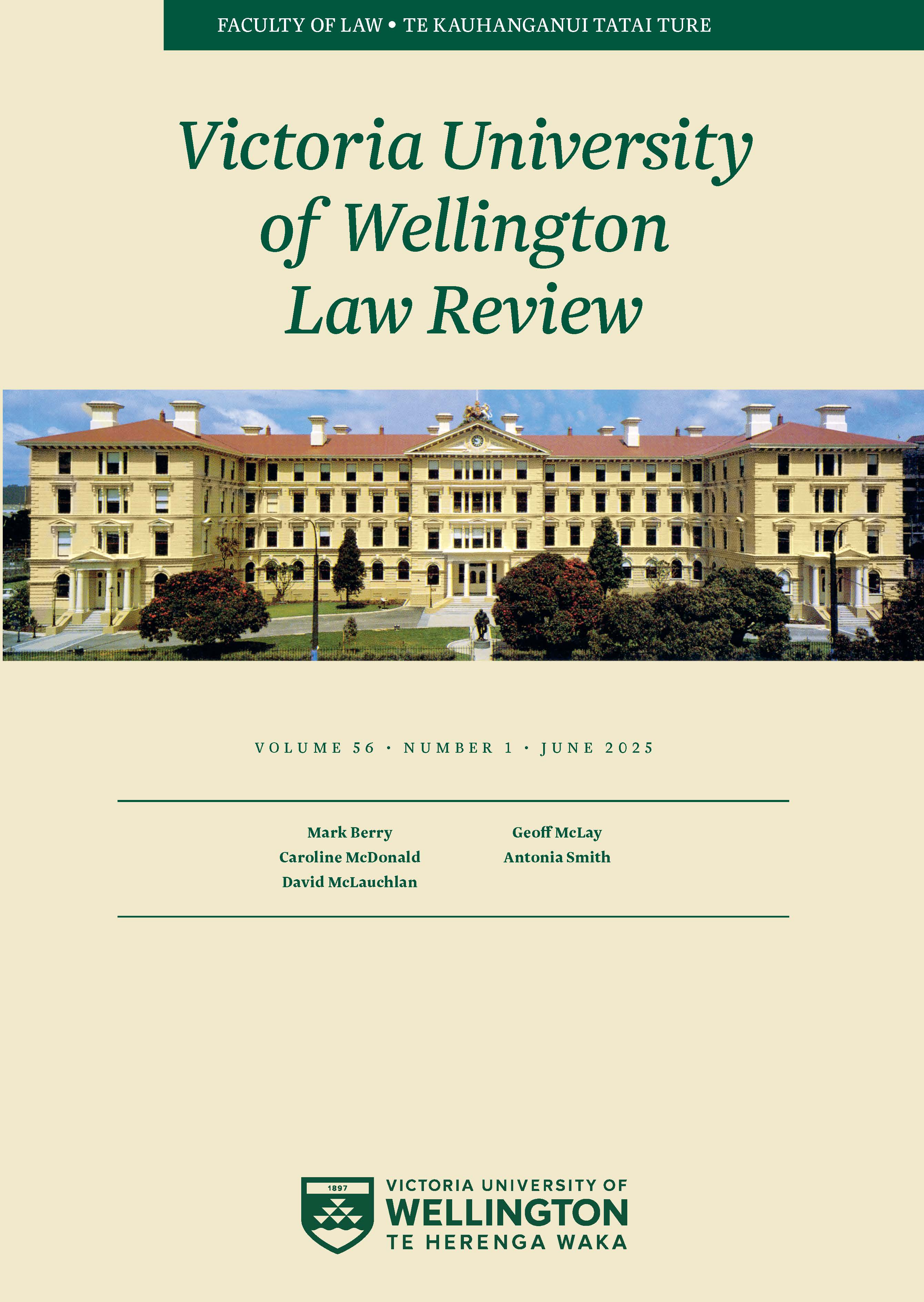Hiding in Plain Sight: The Lost Tikanga Authorities
DOI:
https://doi.org/10.26686/vuwlr.v56i1.10281Abstract
The role of tikanga Māori within the law of Aotearoa New Zealand is the central issue facing the contemporary legal system. However, there are few historical authorities on the interaction between common law and tikanga currently in circulation. The aim of this article is to report the existence of a large body of historical cases in which tikanga-based arguments were pleaded before the courts. In many of these cases, tikanga was rejected. In some, the very existence of Māori law was denied. However, in a multitude of cases, over a wide array of legal areas, "native custom" was accepted as relevant and integrated in various ways into judgments and rulings. This article considers Reynolds v Tuangau, recently discussed in a Supreme Court judgment, as well as three other examples of such cases, picked from a pool collected as part of wider historical study. None of the cases discussed, nor any others found so far, provide an easy answer to the tikanga project. Instead, together they present New Zealand's early legal system as complex and shifting, featuring a variety of approaches to tikanga. The large majority of these cases, some of which were included in official law reports, have gone unnoticed since their adjudication. In this way they have been "hiding in plain sight". Uncovering and studying these historical authorities is an important task in terms both the history and law of Aotearoa New Zealand.
Downloads
Downloads
Published
How to Cite
Issue
Section
License
Authors retain copyright in their work published in the Victoria University of Wellington Law Review.


